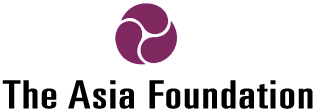 |
||||
Promoting Decent Work and Acceptable Working Conditions in the Tannery Sector in Bangladesh Call for Proposal: Mainstreaming Gender Equity and Social Inclusion (GESI) in program implementation activities The Asia Foundation is seeking applications for a Bangladesh-based consultant to mainstream Gender Equity and Social Inclusion (GESI) in the Foundation’s Promoting Decent Work and Acceptable Working Conditions in the Tannery Sector in Bangladesh program, by conducting a two-day long GESI training for the Foundation and implementation partners’ staff, and producing a GESI Action Plan report. About The Asia Foundation The Asia Foundation (the Foundation) is a non-profit international development organization committed to improving lives across a dynamic and developing Asia. Informed by six decades of experience and deep local expertise, the Foundation’s programs address critical issues in the themes of - governance and law, economic development, women's empowerment, environment, and regional cooperation—to encourage Asia's continued development as a peaceful, just, and thriving region. The promotion of gender equity and the empowerment of women is central to the Foundation’s work. The Foundation is committed to advancing Gender Equity and Social Inclusion (GESI) through both its programs and its institutional practices. It also recognizes the importance of gender-responsive international treaties and agreements, including the Beijing Platform for Action, the Sustainable Development Goals, Convention on the Elimination of All Forms of Discrimination against Women (CEDAW) and national instruments, including the 8th Five Year Plan. The Foundation is also committed to providing a work environment that is free from harassment in any form and established procedures by which allegations of sexual or other unlawful harassment may be reported, investigated, and resolved. Background The leather sector is one of the oldest industries in Bangladesh. As an agro-based by-product industry with locally available raw materials, it has the potential for high export and value-added growth. In May 2014, the leather sector crossed the $1 billion mark in annual exports for the first time, accounting for approximately four percent of total exports. Some economists predict that, if the leather sector continues such impressive growth, it may challenge the ready-made garments (RMG) sector as Bangladesh’s most valuable export. Further, as recently as 2008, 62 percent of all leather sector export earnings came from finished leather; by 2014, this proportion had fallen to 39 percent, as earnings surged in the higher value categories of leather goods and footwear. Despite this structural shift in the composition of exports, the tannery sub-sector remains the dominant employer, covering 92 percent of all leather sector workers—69 percent of whom are temporary without any formal contract or tenure. Research also estimates about 10 percent of tannery workers are women. The percentage of women workers in tanneries is significantly lower than men and even lower than women workers in the leather footwear subsector. Most work in the footwear industry is machine-driven while the tanning industry requires heavy manual labor in relatively more hazardous workplaces. Moreover, female workers in the tannery sector tend to be engaged in unskilled labor while female workers in the footwear sector are engaged in skilled labor in compliant workplaces. Women workers in the tannery sector also face different challenges than their male colleagues in terms of receiving unequal or less pay for the same work, no paid maternity leave, and they often lack access to separate bathrooms and hygiene facilities for women.
Rationale The Foundation is in the fourth year of its project and intends to mainstream a GESI lens for the project to ensure a ‘Do No Harm’ approach that promotes gender equity and targets the most disadvantaged through the project. To prioritize women and other disadvantaged tannery workers in all capacity-building and training activities, the Foundation wants to engage project and implementation partner staff in a joint activity in uncovering the challenges women may face to participating in such activities, and creating an action plan that will include recommendations and activities that allow for maximum participation of women. This may include areas such as: identifying the days and time of day when women are most able to attend sessions; how the project can minimize the interference of caretaking responsibilities; and whether separate women-only sessions or mixed sessions are most appropriate from women’s perspectives. Objectives The main objective of GESI mainstreaming is to build the capacity of the Foundation and implementation partners’ staff in order to reinforce the integration of a GESI approach throughout the remaining time of the project. The specific objectives are as follows:
Scope of work The scope of work has been outlined below:
Expected Output
Timeframe Two weeks. Consultant skills and experience The consultant should possess the following skills and experiences:
Budget The consultant should submit a financial proposal for the consultancy fees for this assignment. The payment is subject to tax and VAT deduction as per prevailing government rules. Application process Interested candidates should submit:
Only complete applications will be considered. The applicants must send off requested documents electronically to country.bangladesh.jobs@asiafoundation.org, clearly indicating on the subject line “Application for GESI Consultant – your/ firm/ organization name”. The deadline to apply is 5:00 pm, December 18, 2021. |